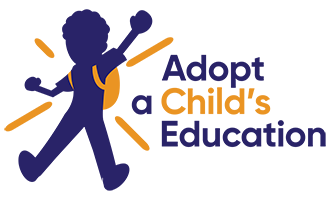
Examinations and Challenges: Becoming an Undergrad Student in Nigeria
By aaceadmin on May 4, 2019 in Education, Original Articles
We discuss various examinations required to be passed by prospective undergrad students in Nigeria. We also introduce the concept of a conducive learning environment.
Oh, the dreaded exams!
Examinations are part and parcel of the academic journey, promotion to new classes and getting into new schools. These are impossible without passing certain exams. Furthermore, some of these examinations are crucial in the life of a secondary school student. This is because one cannot get into a tertiary institution in Nigeria to study without passing them.
Some of these crucial examinations are “WAEC”, “JAMB”, and the “Post-UTME”.
WAEC (WASSCE)
Famously known as WAEC. The West African Senior Secondary Certificate Examinations is organized by the West African Examination Council. This exam is compulsory for students seeking to complete their education to get into tertiary institutions. Most countries across West Africa such as Nigeria, Ghana, specify WAEC.
For one to write them, several factors must be in place. For instance, one must be part of an exam center in order to write WAEC. Examples of such is a registered secondary school. Subsequently, WAEC requires paying a certain fee. Sadly, you find many students cannot write this exam simply due to lack of funds.
JAMB UTME
The Joint Admission Matriculation Board runs and organizes the UTME. The Unified Tertiary Matriculation Examination commonly referred to as JAMB is another major pre-University exam. It is often the deal breaker for Nigerian students. This is because unlike WAEC, your UTME result is valid for only one year. Consequently, several students are more afraid of JAMB than any other exams. Its hallmarks include strict marking, randomly chosen questions, and the costs incurred while preparing for the exams. Likewise, many students do not even write the exams because of the lack of fees needed for the forms.
As a result, this year, Niniola Apata through Adopt A Child’s Education provided JAMB UTME forms for 60 students.
POST-UTME
These examinations are organized by universities. They are intended for prospective students who have passed a certain score threshold during the UTME. On the other hand, it is the final step to getting admitted into one of Nigeria’s tertiary institutions.
NECO
It gets its name from its governing body, the National Examination Council. The NECO Senior Secondary Certificate Examinations is sometimes quite decisive. It is not as popular as WAEC or even compulsory in some schools. However, it is still advisable for students to pass it. It could act as a backup plan on the occasion they do not make their papers in WAEC. In the same vein, registration for the NECO exams costs a fee quite. With figures similar to that of WAEC, it is often a factor that discourages students from participating.

Preparing for Examinations
Conducive Learning Environment
Developing a classroom environment conducive to learning is a process that entails:
- Designing and thoughtfully creating the physical space
- Getting the students to cooperate
- Creating a communal environment
- Providing access to adequate learning and support materials
- Maintaining a positive classroom climate and culture.
This is essential and helps students study adequately, thereby making it easier to pass examinations they sit for.
Therefore as part of its belief in fostering child education in Nigeria, Niniola Apata’s Adopt A Child’s Education strongly advocates for the provision of an enabling and conducive learning environment for young students.
More on this topic in future posts. Stay tuned.
 Adopt A Child's Education
Adopt A Child's Education 


